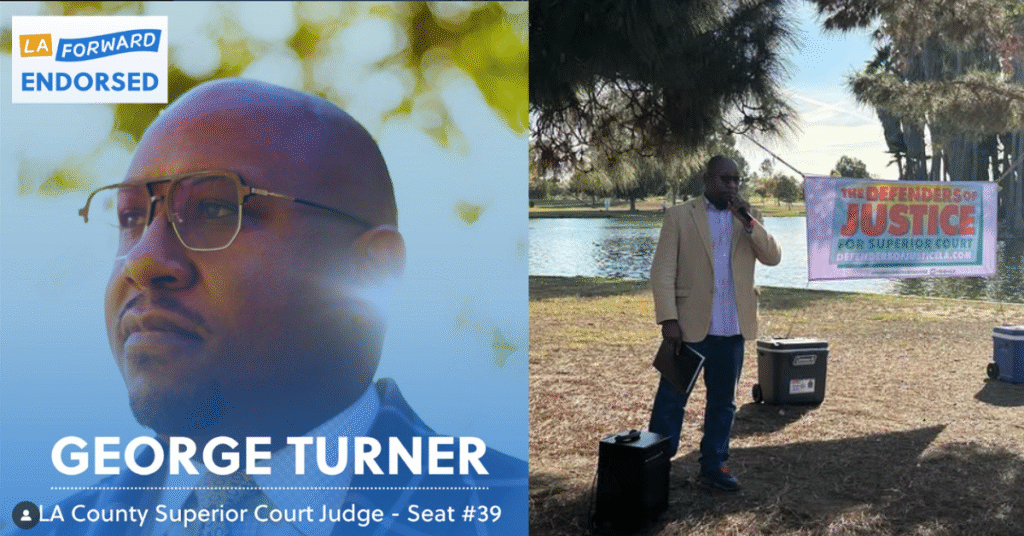Introduction
george a turner jr began his journey as a public defender, fighting in courtrooms for those without means, and now serves as judge on the Los Angeles Superior Court. His path reflects deep commitment to justice reform, community service, and restoring balance to a legal system long skewed by unequal power. From trying over 50 complex cases to advocating alternatives to incarceration, Turner’s story resonates beyond jurisprudence and reaches into civic ideals and human dignity. In this article, we’ll explore his life, career, philosophy, and significance in the evolving landscape of American courts.
Early Life & Education of george a turner jr
George A. Turner Jr was born in Inglewood, California, and grew up immersed in the local community he now serves. His early education took place in public schools in Inglewood. He later attended UCLA, where he graduated summa cum laude in 2004 and became a member of Phi Beta Kappa.
He pursued his Juris Doctor at UCLA School of Law, specializing in critical race studies — a field exploring how law intersects with issues of equity and race. This concentration grounded him in an understanding of systemic inequality and the need for fairness within institutions.
His academic path shaped not only his intellect but also his empathy. Turner’s professors and peers often noted his ability to approach difficult issues with balanced reasoning and genuine concern for justice.
Legal Career: From Public Defender to Advocate
After law school, george a turner jr joined the Los Angeles County Public Defender’s Office, where he dedicated himself to representing individuals who could not afford private legal counsel. He took on a wide spectrum of cases, ranging from violent crimes and fraud to juvenile and misdemeanor matters.
During his tenure, he became known as a thoughtful trial attorney who treated every client with dignity and seriousness, regardless of the charges or social background. He handled more than 50 trials across multiple courts, including the Compton Court, Metropolitan Court, and the Clara Shortridge Foltz Criminal Justice Center.
In addition to his courtroom advocacy, Turner also led a specialized unit focused on record clearing for unhoused or formerly incarcerated individuals. This initiative helped many regain employment and stability by removing legal obstacles that kept them marginalized.
His years in public defense forged a strong belief in restorative practices and the idea that the law should help rebuild lives, not just punish mistakes.

The 2024 Judicial Campaign & Election
In 2024, george a turner jr stepped into the public eye as a candidate for Seat 39 on the Los Angeles Superior Court. His campaign focused on fairness, balance, and the belief that communities are best served when judges come from diverse professional backgrounds.
Running against Steve Napolitano in the general election, Turner secured victory with nearly 60 percent of the vote. His success marked a significant moment for Los Angeles County, as he became one of the few judges elected from a public defense background rather than a prosecutorial one.
He officially took office on January 6, 2025, beginning a term set to last until 2031. His election brought renewed attention to the growing call for “Defenders of Justice” — a movement seeking to diversify the bench and introduce more reform-minded judges with lived community experience.
Vision & Philosophy: Decarceral and Restorative Justice
A defining principle of george a turner jr’s judicial philosophy is decarceral justice, which emphasizes alternatives to incarceration and community-based resolutions over punitive sentencing.
He believes that the justice system must evolve to include restorative practices — where accountability, healing, and rehabilitation are prioritized. Turner’s approach is centered on the idea that judges should not merely interpret law, but also act as facilitators of fairness and humanity.
During his campaign, he often stated that many legislative reforms are meaningless unless judges actively apply them in courtrooms. To him, true progress lies in daily judicial choices — decisions about bail, sentencing, diversion, and treatment programs that can determine whether individuals have a chance to rebuild their lives.
He also advocates for mental health diversion programs, arguing that people struggling with mental illness or addiction deserve treatment, not incarceration.
Challenges & Critiques Faced by george a turner jr
Transitioning from a defense attorney to a judge comes with scrutiny. Some critics questioned whether Turner’s defense background might affect his impartiality. Others wondered if deep systemic reform is realistic within the constraints of existing court systems.
Turner has addressed such concerns with humility, acknowledging that change takes time. He emphasizes that his goal is not to disrupt the system recklessly, but to make it more balanced, humane, and responsive.
Institutional challenges, including limited budgets, traditional court cultures, and case backlogs, often slow reform. Turner remains pragmatic, recognizing that even small improvements — like using diversion programs more frequently — can make measurable differences in people’s lives.
Despite skepticism, his supporters see him as a necessary voice in a system too long dominated by one perspective. His presence on the bench signals that compassion and fairness can coexist with accountability.
Key Milestones & Achievements
- Tried more than 50 jury and bench trials covering felony, misdemeanor, and juvenile matters.
- Led record-clearing efforts for unhoused and low-income individuals, removing barriers to employment and housing.
- Won the 2024 Los Angeles Superior Court Seat 39 election with significant community support.
- Became one of the few judges in the county with a career rooted in indigent defense rather than prosecution.
- Actively supports programs for restorative justice, youth diversion, and judicial diversity.
Each of these milestones reflects Turner’s dedication not only to legal excellence but to a broader vision of justice as a living, evolving concept.
What Lies Ahead for george a turner jr
Looking forward, george a turner jr aims to expand the use of alternatives to incarceration and integrate mental health programs into court procedures. His work emphasizes that community safety comes from addressing root causes, not simply imposing harsher sentences.
He is expected to collaborate with community organizations, social workers, and legal educators to design systems that humanize court proceedings. By incorporating education, therapy, and employment support into sentencing plans, Turner hopes to reduce recidivism and strengthen community trust in the justice system.
He also intends to mentor younger public defenders interested in pursuing judicial roles — encouraging a new generation of judges with backgrounds grounded in equity and community service.
Over time, his greatest legacy may not be any single ruling, but rather the cultural shift he inspires within the judiciary itself.
Two Personal Insights & Lessons
Staying Grounded in Community
One of Turner’s former colleagues shared that he frequently turned down higher-paying private positions to remain in public defense. He believed real justice begins with those who have the least voice. His commitment reflects an understanding that leadership requires empathy, not prestige.
Change is Gradual but Meaningful
Turner’s journey proves that systemic reform happens one case, one choice, and one judge at a time. While sweeping change may seem slow, consistent decisions rooted in fairness gradually transform institutions from within.
FAQs
Q: When did george a turner jr become a judge?
A: He was sworn in on January 6, 2025, as a judge for the Los Angeles Superior Court, Seat 39.
Q: What was his professional background before becoming a judge?
A: He served as a public defender for many years, trying criminal and juvenile cases and leading record-clearing initiatives for vulnerable individuals.
Q: What are george a turner jr’s main judicial priorities?
A: His key priorities include restorative justice, mental health diversion, alternatives to incarceration, and increased judicial diversity.
Q: Why is george a turner jr’s election considered significant?
A: His victory represents a shift toward a more balanced judiciary, bringing perspectives from public defense into a system historically dominated by prosecution backgrounds.
Closing Thoughts
The story of george a turner jr is both inspiring and instructive. It shows that true justice extends beyond legal texts into the lives and struggles of ordinary people. His career stands as an example of how empathy, intellect, and resilience can reshape the very definition of justice in modern America.
By prioritizing humanity and fairness, Turner reminds us that the law’s highest purpose is not punishment — but restoration. His journey from Inglewood classrooms to the Los Angeles Superior Court bench demonstrates what it means to serve justice with both courage and heart.


